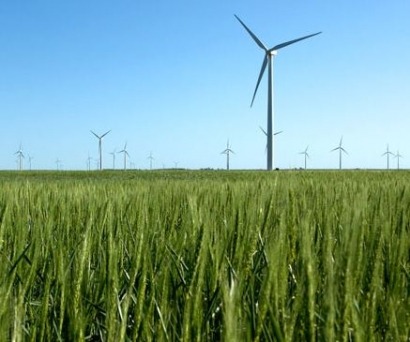
Green businesses and NGO’s are queuing up to condemn the Chancellor, George Osborne, following the publication of the government’s strategy earlier today. The document was published on the Department of Energy & Climate Change (DECC) website and appears to prioritise the development of new gas plants over and above renewable energy.
The strategy provides for the development of 26MW of new gas plant by 2030 with the added suggestion that the UK might need even more gas capacity than at present. It also pushes for the exploitation of unconventional gas and oil such as shale gas with a promise to establish a government office for unconventional fuels as well as a consultation on an appropriate fiscal regime for shale gas extraction.
Green groups and renewable energy trade associations have widely criticised the strategy with Andy Atkins of Friends of the Earth (FoE) warning that the construction of more gas-fired power stations will condemn households to increasingly expensive fuel bills. Mark Kenber, Chief Executive of The Climate Group, added that the strategy misses the central point, the urgent need to decarbonise the economy. Even the Daily Express joined in with its main headline screaming out “Mad dash for gas will put bills up 30%.”
“First of all the gas strategy was launched by the Chancellor and not by DECC” said Martin Wright, Chairman of the Renewable Energy Association (REA), “so there is a strong indication in that. Moreover, it seems to give priority to gas whereas in the main it should be renewables that are given priority as a source of non-volatile, low-cost energy. It’s uncertain anyway how long gas fields will last, already in the US they’re running out in two years or so. Unconventional gas will also be very expensive. The Chancellor must understand that gas is not cheap, nor does it offer stable pricing in the future.I am concerned that the strategy gives a strong signal concerning government priorities away from renewables and of course investment will follow that. We have no objection to gas being part of the overall strategy, but the concern is that this strategy is going to slew activity away from renewables and as an industry body that is of great concern to us.”
Nick Molho, Head of Energy Policy at WWF, described the strategy as ‘highly risky’ both environmentally and economically, adding that it showed a reckless disregard for both billpayers and the environmental impact of burning even more fossil fuels. Meanwhile the Solar Trade Association (STA) commented that the government seems to be running two parallel energy policies.
“We hoped the Gas Strategy would leave no room for doubt that Government will ensure investment in gas must complement the delivery of the binding 2020 renewable energy targets” said Leonie Greene, STA Head of External Affairs. “That is not the case and it begs the question if Government is running two parallel energy strategies, and the extent to which they are in competition. The Government should urgently prioritise sorting out the policy framework for renewables, because investment is floundering. Instead it seems to be putting huge resources into promoting fossil fuels, while solar is subject to repeated policy delays.”
The STA’s Solar Specialist, Ray Noble, meanwhile added that the government is fixated on the wrong technologies and that it is particularly disturbing to see unconventional gas being pushed as nations struggle to hammer out a global agreement on preventing dangerous climate change.
Further information:

